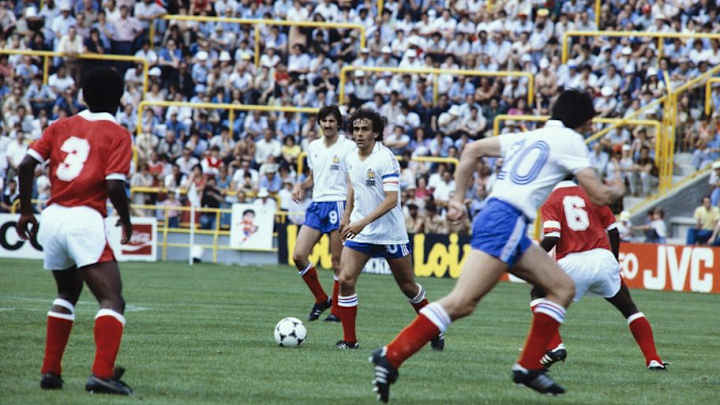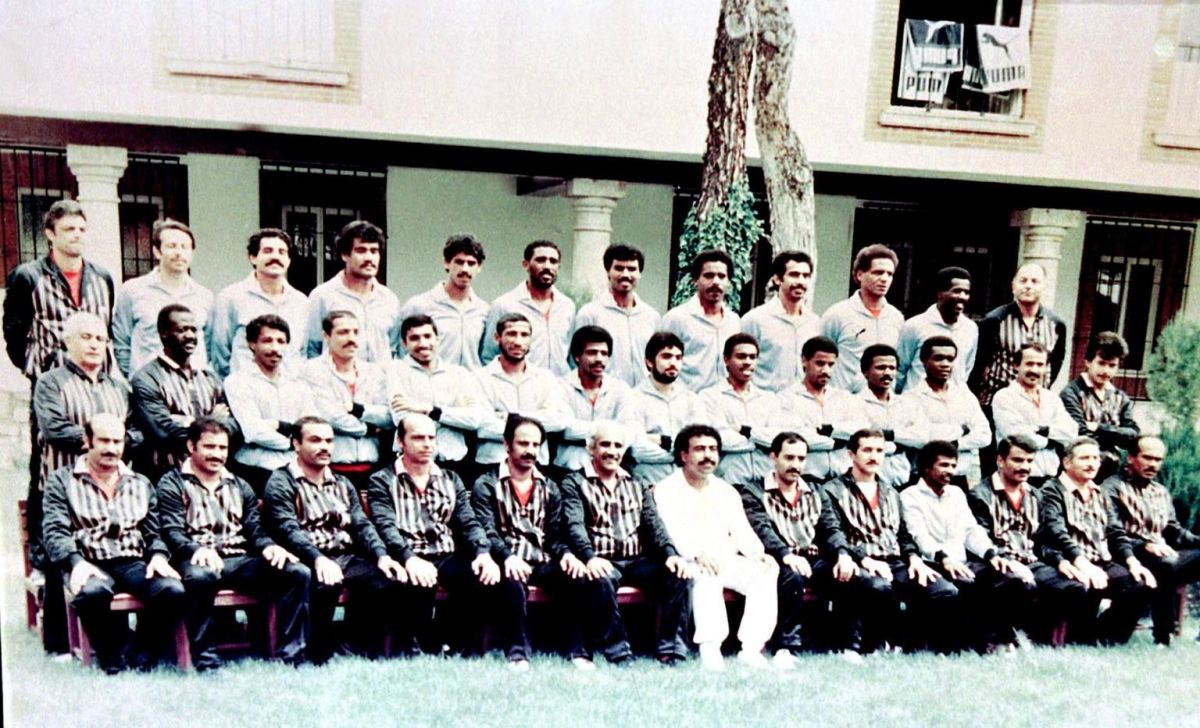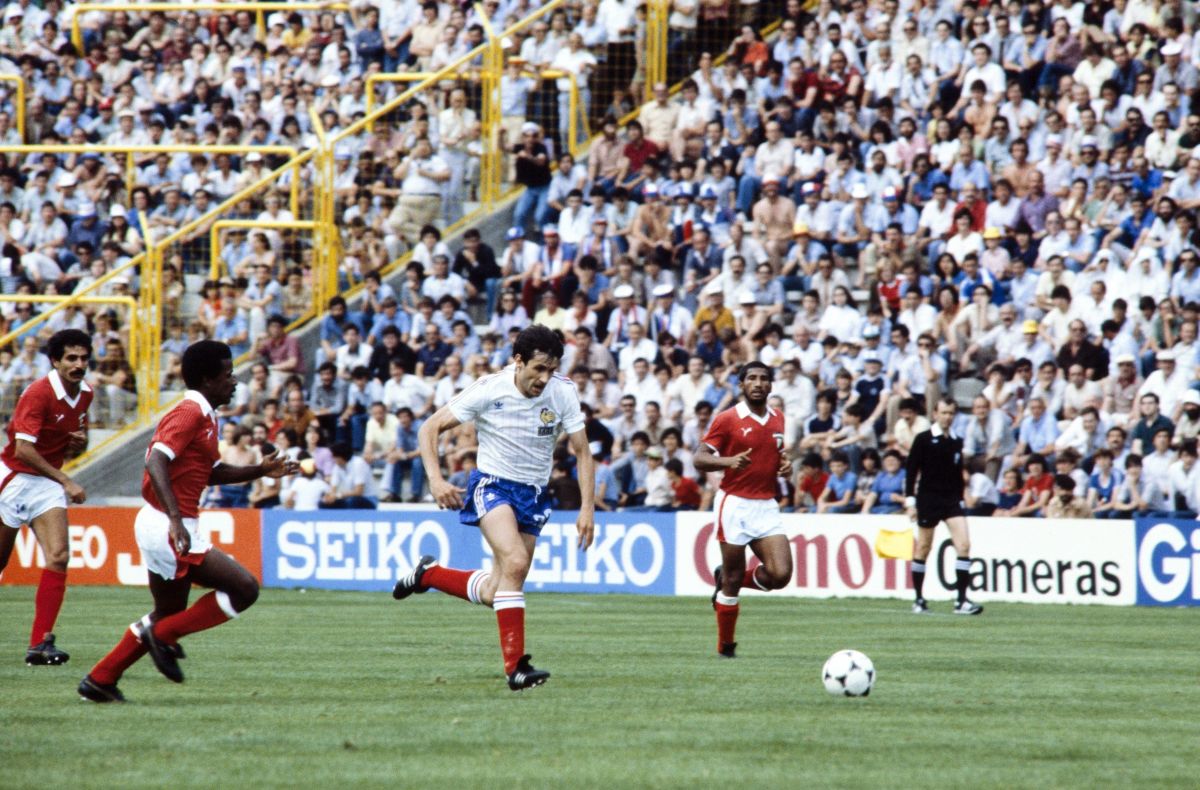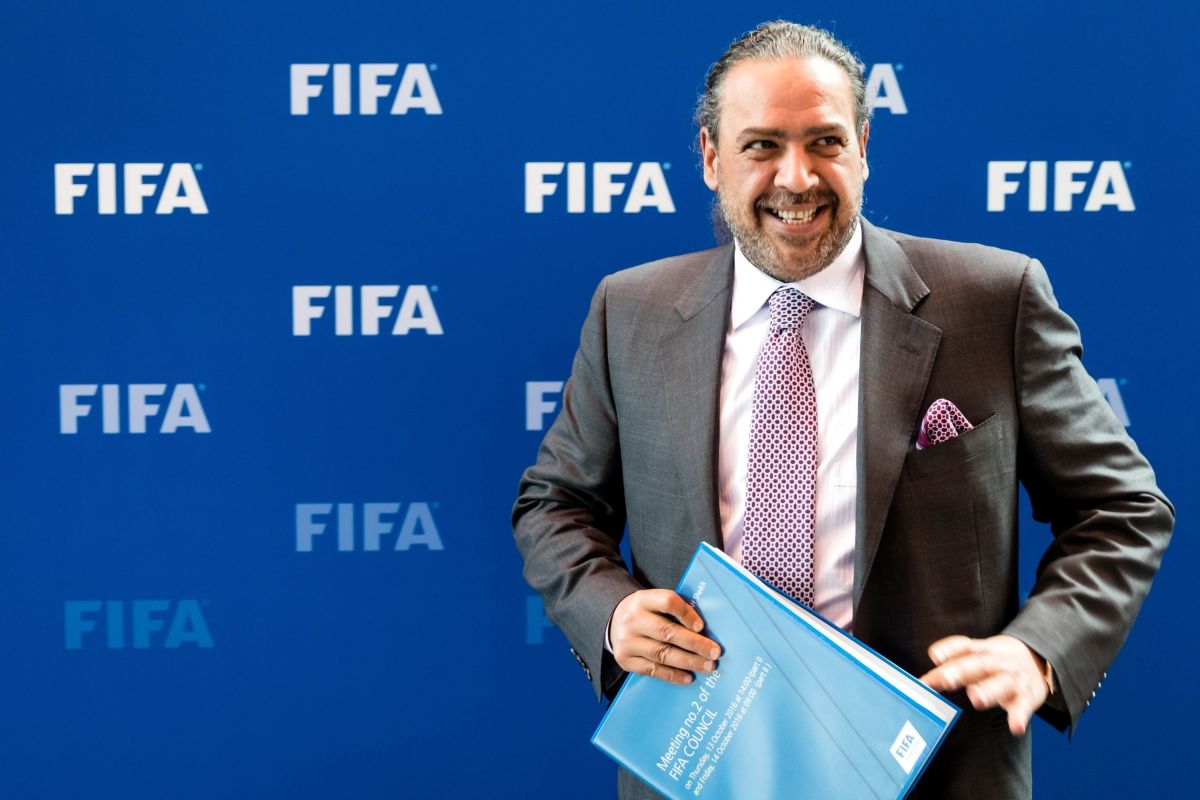World Cup Countdown: 9 Weeks to Go - Prince Fahid's Stunning Intervention for Kuwait Against France

While this may seem farfetched, so stop me if you have any questions, there was a time long, long ago when the rich and powerful - say, a Sheikh, for example - could single handedly reverse the fortunes of a team. Outlandish, I know.
But it was this level of influence that Sheikh Fahad Al-Ahmed Al-Jaber Al-Sabah (or Prince Fahid as he was also known) was able to call upon, in mind-blowing fashion, during Kuwait's group stage game with France at the 1982 World Cup.
The debacle occurred on a blisteringly hot day in Valladolid at the Estadio Jose Zorilla Stadium. Kuwait came into the game, only the second of their inaugural (and only) World Cup campaign, off the back of an admirable 1-1 draw with Czechoslovakia. The French, meanwhile, had endured a less encouraging start in Spain, losing 3-1 to England in Bilbao in their opener.

Despite Kuwait's endeavour, as the game passed the 80th minute mark, it was going the way of the favoured French, with the score at 3-1. Having regained some of their dignity just five minutes before with the goal that reduced the gap to two, the Kuwaiti defenders were in no mood to suffer any further embarrassment.
However, when they heard a distinctly audible whistle blown in their vicinity, they halted any efforts at resistance - adhering stringently to the old adage of 'playing to the whistle'. Unfortunately, what this seemingly airtight logic failed to account for, was the notion that not all whistles are equal. Especially if they originate from the crowd, and not the referee.
The French, far to wily to observe such a custom, duly continued with their move. Alain Giresse latched onto a ball from Michel Platini, and emphatically dispatched it into the net, by way of a hesitant Ahmed Al-Tarabulsi in goal.
Kuwait's bewilderment turned to belligerence, as they (respectfully) hounded the referee with adamant indignation. Whilst their country's footballing representatives were remonstrating, their footballing emissary, Prince Fahid, displayed his own disproval with frenetic gesticulation from the stands.

As if in some way anticipating the drama that was about to unfold, or perhaps simply because he had already provided the broadcasters with some fantastically theatrical reaction shots, the cameras immediately panned to the Prince.
Initially he appeared to be producing an odd heckle - whooshing his right hand in an emphatic circle. It soon became clear that this was actually a beckoning to his players - an attempt to haul them off the field.
When this was met with the appropriate levels of confusion and apprehension from Kuwait's coaching staff, the Prince took matters into his own hands, communicating with steely conviction that if they wouldn't come to him, he would sure as hell go to them.
With fire in his eyes, the Sheikh made his way down to the pitch - a not so problematic task in those pre corporate box, security deficient days. Having completed the short trip down, the Emir's brother showed his true footballing prowess, with a perfectly executed ironic clap directed towards the officials.
France-Kuwait was postponed at the 1982 World Cup when Kuwaiti officials protested a French goal 3-1 down. They lost 4-1.
— Samuel Luckhurst (@samuelluckhurst) June 15, 2012
The Guardia Civil, as dumbfounded as everyone else present, meekly broke from their regimented blockade to allow Fahad Al-Ahmed to pass, before presumably remembering their accountability and gingerly following him.
The Sheikh, undeterred, headed straight to the mouth of the fight, and joined his players in surrounding referee Myroslav Stupar, who was incidentally presiding over his first (and of course, if you have any inkling of where this is going, last) World Cup appearance.
Now, it remains unclear as to how and if Fahad Al-Ahmed built on his rash threat of abandonment when speaking to Stupar, but it must've been an extremely salient point. Because, without further ado, the Ukrainian official skidaddled off to conduct a tete-a-tete with his linesman.
Fahad, suddenly (and remarkably) assured that his work was complete, marched back into the stands. Having finished their consultation, the officials (independently, of course) came to the decision that the goal would be anulled, despite the fact that he had visibly waved play on in the heat of the moment.
With the Prince once again smugly perched in his place up in the rafters, France's coaches were understandably incensed. However, intriguingly enough, Les Blues' outrage swiftly snapped the Guardia Civil out of any stupor they had been under, and they regained their usual combativeness to marshal any of the French management's advances.
Notwithstanding a widespread and enduring confusion, the intrusion actually had very little impact on the game itself - France would eventually get their fourth goal in the 89th minute. However, for the game at large, it was stratospheric. Stupar would not officiate internationally again. The Prince would be fined a hard-hitting £8000.
The Kuwait football association learnt their lesson, until they relapsed in 2015 with a totally unconnected instance of governmental meddling in KFA affairs, for which they would be banned from World Cup 2018 participation.

One man who certainly wasn't to blame was Sheikh Ahmad Fahad al-Ahmad al-Sabah, son of our previous friend, the Prince. The Sheikh, in another total coincidence, was forced to resign from his prominent position in the FIFA council after corruption implications, having at one time been tipped as Sepp Blatter's predetermined replacement.
Oh well, despite these anomalies, at least Football has learnt once and for all the dangers that can ensue when a select few of the world's richest men possess autonomous rule over the beautiful game.
